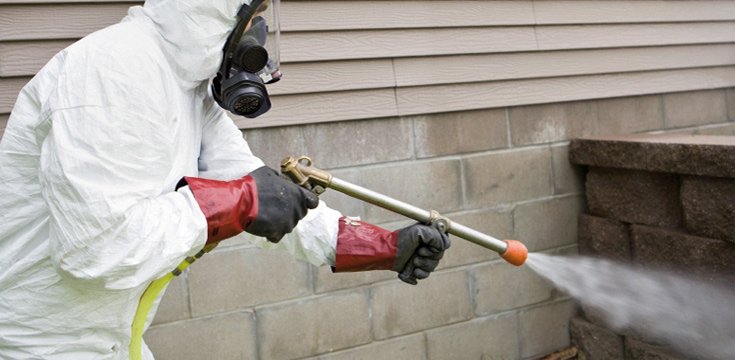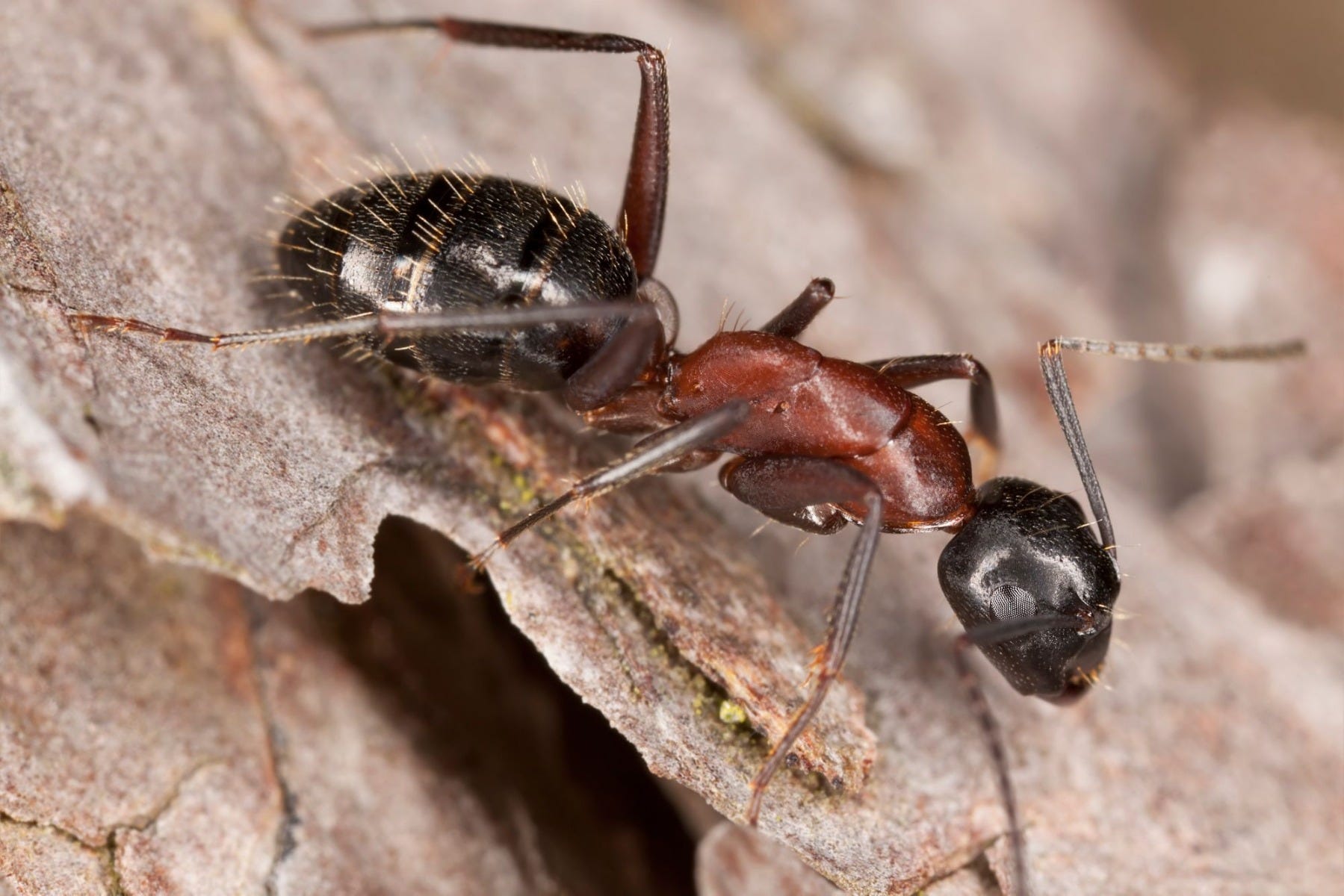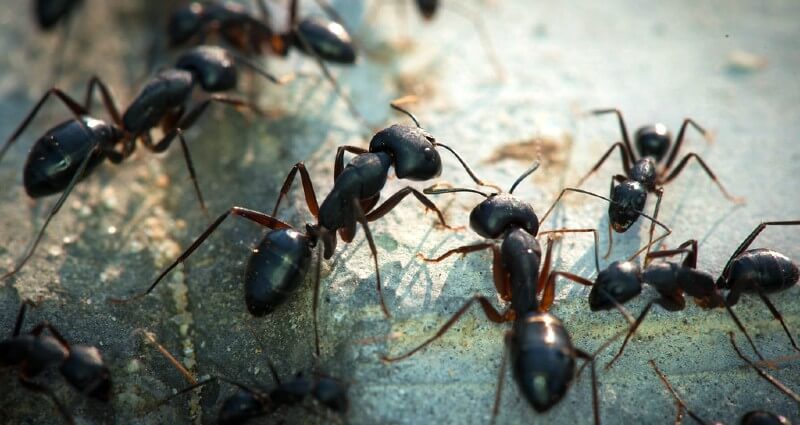Ecological Effect of Bug Control: Balancing Effectiveness With Sustainability
The ecological influence of pest control is an important concern that requires a delicate balance in between attaining performance in ensuring and handling bugs sustainability of our ecosystems. From the use of dangerous chemicals that seep into our dirt and water to the unintended repercussions on non-target varieties, the repercussions of conventional bug control methods are far-ranging.
Hazardous Chemicals in Bug Control
The utilization of hazardous chemicals in insect control presents considerable ecological and health and wellness dangers that call for cautious factor to consider and reduction methods. Chemicals, herbicides, and insecticides are frequently utilized to eliminate pests, yet their prevalent application can cause unexpected repercussions. These chemicals can contaminate dirt, water resources, and the air, impacting not only the targeted pests yet likewise helpful bugs, wildlife, and human beings.

To address these risks, incorporated bug administration (IPM) methods are being promoted as a more sustainable choice. IPM entails a mix of techniques such as biological control, habitat adjustment, and the targeted usage of chemicals as a last hotel (ant control walkerton nc). By embracing a holistic strategy to pest control, we can lessen the environmental and health influences connected with hazardous chemicals while effectively taking care of pest populations
Influence on Non-Target Types
Thinking about the unintentional effects of bug control methods, the influence on non-target species is an essential element that requires detailed assessment. While parasite control procedures aim to target certain insects, various other organisms in the environment may be unintentionally affected. Non-target types, consisting of beneficial bugs, birds, mammals, and even plants, can experience indirect or straight harm from pesticide applications or organic control approaches.
Insecticides developed to fight a specific insect bug may harm pollinators like bees or all-natural killers such as ladybugs. Organic control representatives, if not species-specific, can present dangers to unexpected targets, interrupting the environmental balance.
To reduce the effect on non-target species, incorporated parasite monitoring (IPM) methods that highlight an alternative method to pest control are recommended. These approaches focus on making use of ecologically friendly practices, minimizing harm to advantageous organisms while properly taking care of pest populations. Conducting thorough threat evaluations and checking the results of insect control efforts are essential action in guarding non-target varieties and promoting total community wellness.
Soil and Water Contamination
Unintentional ecological repercussions of pest control approaches extend past affecting non-target varieties, with considerable implications for dirt and water contamination. Pesticides, herbicides, and chemical plant foods used in bug control can leach right into the soil and pollute groundwater, posing a danger to both aquatic and terrestrial ecosystems. Dirt contamination can interfere with the balance of microbes vital for vitamins and mineral cycling and plant development, leading to reduced dirt fertility and efficiency. In addition, these chemicals can persist in the setting for extended periods, gathering in the soil and possibly getting in the food cycle.
Water contamination is another essential issue connected with bug control techniques. Drainage from agricultural fields treated with pesticides can bring these chemicals right into neighboring water bodies, influencing marine microorganisms and water top quality. Impurities in water resources can have far-ranging effects, influencing not just marine life yet also human health through the consumption of polluted water or water microorganisms. To mitigate soil and water contamination from insect control activities, integrated pest monitoring strategies that focus on sustainability and decrease chemical inputs are critical.
Air Air Pollution From Pesticide Use
Direct exposure to airborne pesticides throughout agricultural applications poses a significant problem for air contamination control steps. When chemicals are splashed onto crops, they can volatilize right into the air and type volatile natural substances (VOCs) and various other airborne pollutants. These chemicals can add to the development of ground-level ozone, a major element of smoke that can have harmful effects on human health, plant performance, and general air high quality. Additionally, pesticide drift, where pesticides are carried by the wind to unintentional areas, can result in the contamination of neighboring environments and water bodies.

Techniques for Lasting Parasite Control
In the realm of farming methods, applying sustainable insect control approaches is paramount for preserving eco-friendly balance and protecting plant returns. Lasting parasite control emphasizes making use of eco-friendly techniques to take care of pest populaces properly while reducing injury to non-target organisms and ecosystems. Integrated Insect Administration (IPM) is a widely taken on method that incorporates organic, social, physical, and chemical control approaches to achieve long-term pest management solutions.
One key strategy in lasting parasite control is advertising biodiversity within agroecosystems. By improving natural adversaries of parasites, such as parasitoids and predators, farmers can decrease the need for artificial chemicals. Crop rotation and diversity are likewise effective strategies to interrupt pest life cycles and create much less beneficial conditions for parasites to prosper. Furthermore, using pest-resistant crop selections and using methods like trap chopping can help in reducing insect stress without counting heavily on chemical treatments. Inevitably, by integrating these sustainable bug control techniques, farmers can achieve a balance in between pest monitoring performance and environmental stewardship.
Conclusion
Finally, the environmental effect of pest control techniques must be meticulously thought about to stabilize effectiveness with sustainability. Dangerous chemicals used in insect control can bring about soil and water contamination, air contamination, and injury non-target species - termite control. It is crucial to execute lasting parasite control strategies to lessen these unfavorable results on the setting and promote a healthier environment for future generations
By taking on an all natural approach to pest control, like it we can reduce the ecological and wellness influences linked with harmful chemicals while efficiently handling pest populaces.

To alleviate the air pollution triggered by chemical use, it is necessary to adopt integrated parasite management methods that focus on the use of non-chemical insect control approaches, such as crop rotation, all-natural killers, and resistant crop ranges. Lasting pest control highlights the usage of eco friendly techniques to handle parasite populations successfully while decreasing harm to non-target organisms and environments. Integrated Pest Management (IPM) is a commonly taken on strategy that combines biological, social, physical, and chemical control approaches to attain lasting pest management services.
Comments on “Total Ant Control: Methods and Services to Defeat Ant Issues”